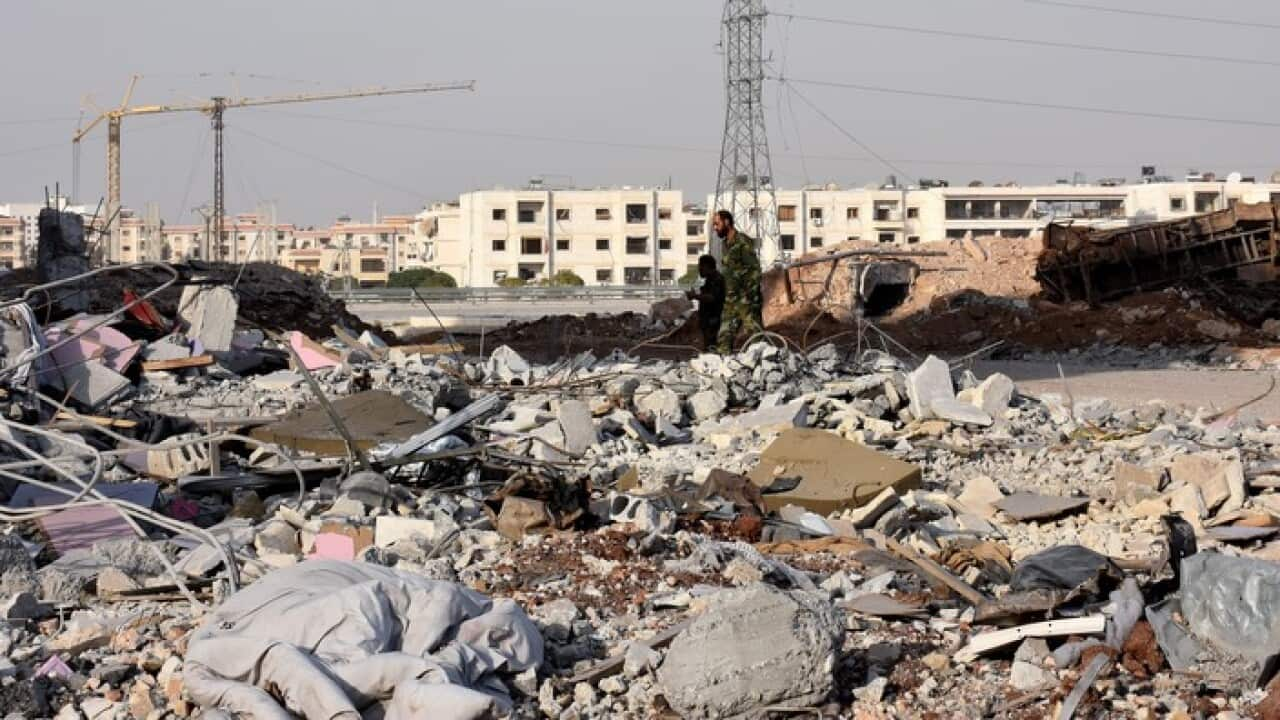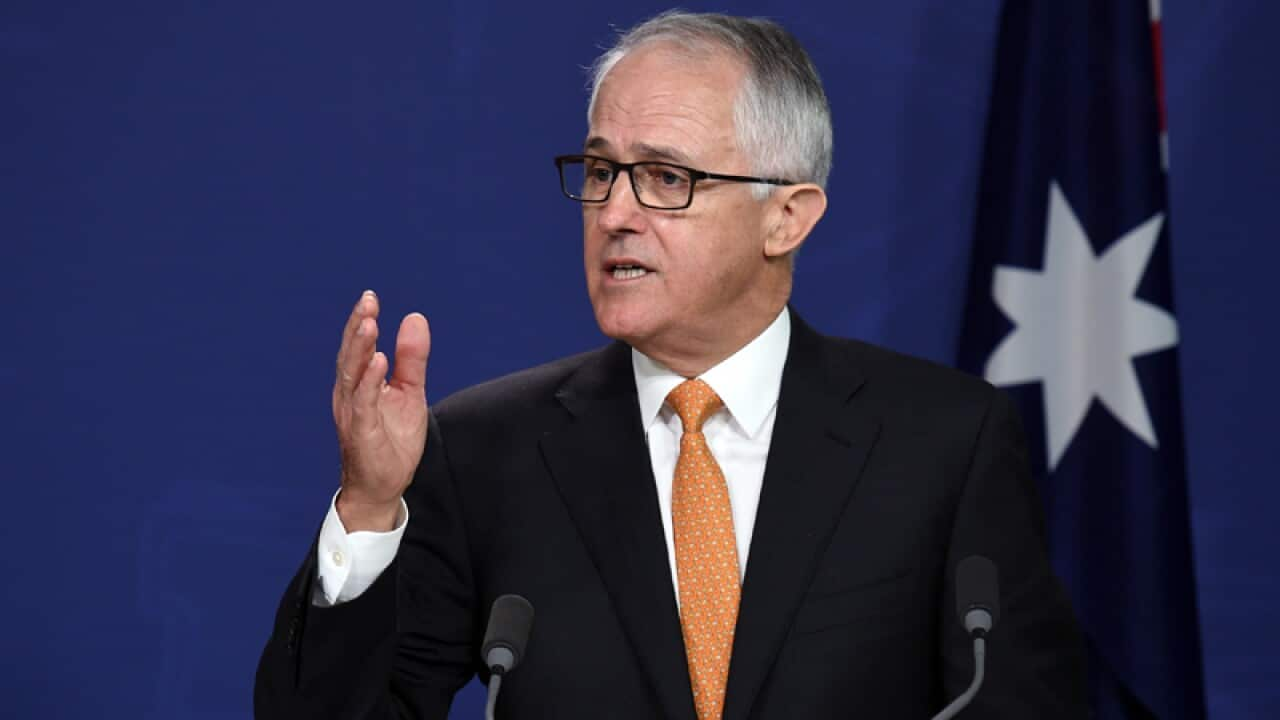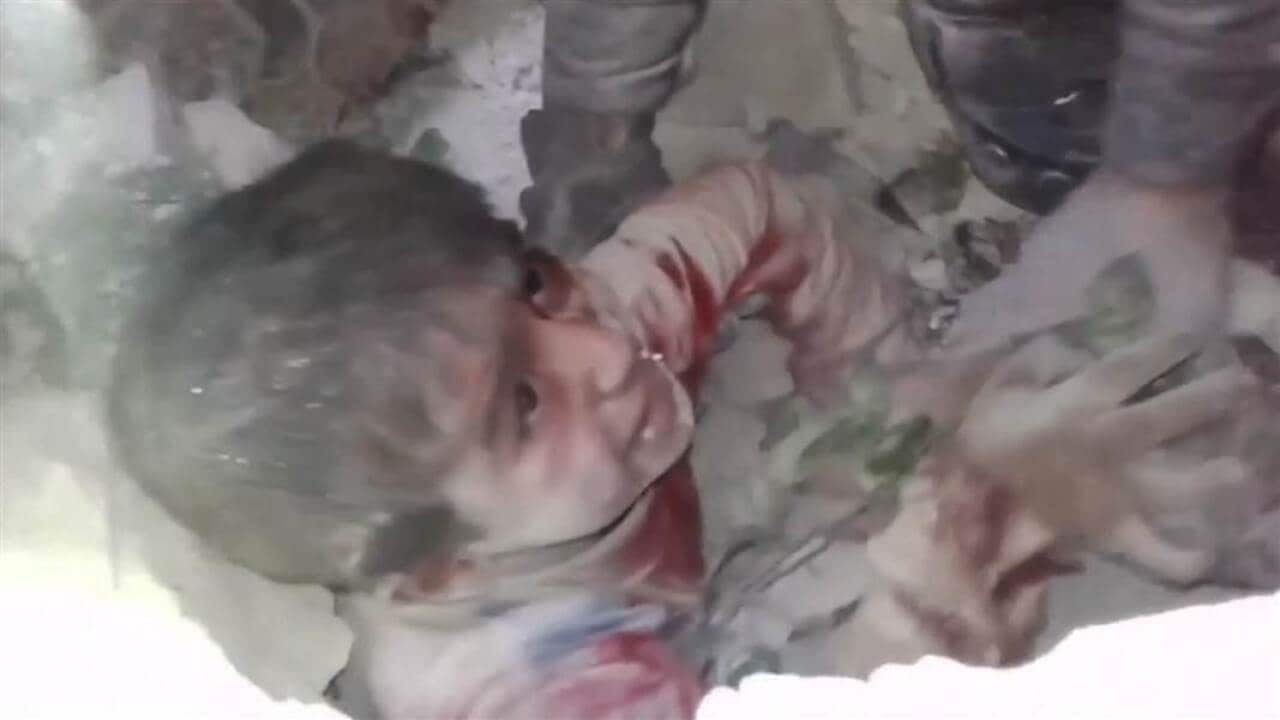US President Barack Obama urged greater efforts to end the violence when he met Russian President Vladimir Putin on the sidelines of an Asia-Pacific economic summit in Peru.
Obama "noted the need for Secretary (John) Kerry and Foreign Minister (Sergei) Lavrov to continue pursuing initiatives, together with the broader international community, to diminish the violence and alleviate the suffering of the Syrian people", a White House official said.
International concern has mounted since Damascus began a ferocious assault last Tuesday in an attempt to recapture eastern Aleppo.
But in Damascus, UN envoy Staffan de Mistura was rebuffed on a truce proposal that would allow the opposition to administer the city's rebel-held east.
Related reading

Hospitals in eastern Aleppo 'knocked out of service'
"We are running out of time, we are running against time," De Mistura said after meeting Foreign Minister Walid Muallem.
Aid agencies fear that "instead of a humanitarian or a political initiative" there would be "an acceleration of military activities" in eastern Aleppo and elsewhere, the envoy told journalists.
"By Christmas... due to military intensification, you will have the virtual collapse of what is left in eastern Aleppo; you may have 200,000 people moving towards Turkey -- that would be a humanitarian catastrophe."
On Sunday, a rebel rocket attack killed at least eight primary school children in the Furqan neighbourhood of the government-held west, state media said.
Syrian television showed bloodied, weeping children being treated in hospital, and an AFP journalist saw pupils being rushed from the school after the attack.
'International outrage'
Closing the net further, regime forces broke through into the city's northeastern area of Massaken Hanano, sparking fierce clashes, the Syrian Observatory for Human Rights said.
The Britain-based monitoring group said at least 19 civilians including five children were killed in the east on Sunday.
That brought to 115 the number of civilians killed, including 18 children, since the bombardment of east Aleppo resumed, it said. At least 74 rebels have been killed.
The Observatory also reported heavy fighting as the army sought to gain ground in the eastern Bustan al-Basha and Sheikh Saeed neighbourhoods.
More than 300,000 people have been killed in Syria since the conflict began with anti-government protests in March 2011. Successive international attempts to find a peaceful resolution have failed.
Related reading

Fears this winter will be worst time of Syrian war yet
De Mistura said he opened his talks with Muallem by "expressing serious concern and indeed shared the general international outrage for the news coming from eastern Aleppo".
Muallem said he had rejected a proposal for a deal that would recognise an autonomous rebel administration in east Aleppo.
De Mistura has recently floated a proposal to halt fighting in the city, under which jihadist forces would leave and the government would recognise the opposition administration in the east.
But Muallem said "we reject that completely".
"How is it possible that the UN wants to reward terrorists?" he asked.
The regime offensive has forced hospitals and schools to close and destroyed rescue worker facilities.
US National Security Advisor Susan Rice said Washington condemned "in the strongest terms these horrific attacks against medical infrastructure and humanitarian aid workers".
Brief ceasefires
"The Syrian regime and its allies, Russia in particular, bears responsibility for the immediate and long-term consequences these actions have caused in Syria and beyond."
Moscow intervened militarily in support of President Bashar al-Assad's government last year.
Russia says it is not involved in the current assault on Aleppo, concentrating its firepower on opposition and jihadist forces in neighbouring Idlib province instead.
But Damascus and its allies have made clear they want rebels expelled from eastern Aleppo, which fell from regime control in mid-2012.
More than 250,000 people remain in eastern Aleppo, which has been sealed off since government forces surrounded it in mid-July.
No aid has entered the east since then, and the siege has created food and fuel shortages.
In mid-October, Russia said it was halting its strikes on Aleppo, and organised a series of brief ceasefires intended to encourage civilians and surrendering rebels to evacuate the east.
Related reading

Australia reaches halfway mark for Syrian refugee intake
But few did so, and the UN said the short windows were insufficient for it to secure security guarantees for aid deliveries or evacuations.
The renewed bombing has particularly affected medical and rescue facilities, and shelling on Friday destroyed one of the last hospitals in east Aleppo.
Staff were also forced to evacuate the east's only children's hospital because of repeated attacks.
The Observatory also said Sunday a deal was reached to evacuate rebels and their families from besieged Khan Chih, 25 kilometres from Damascus, to the northwestern province of Idlib.










